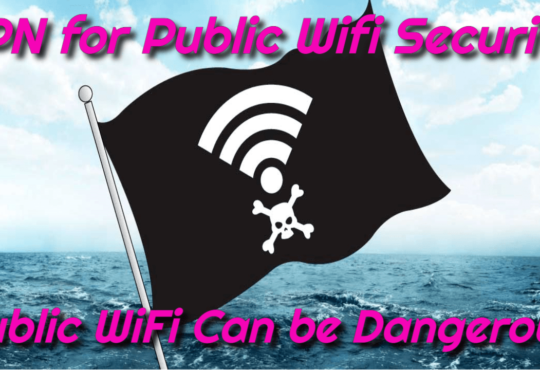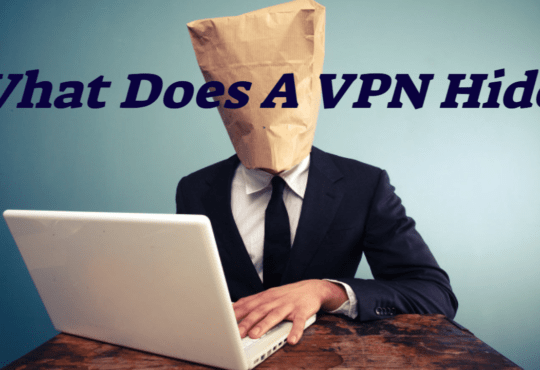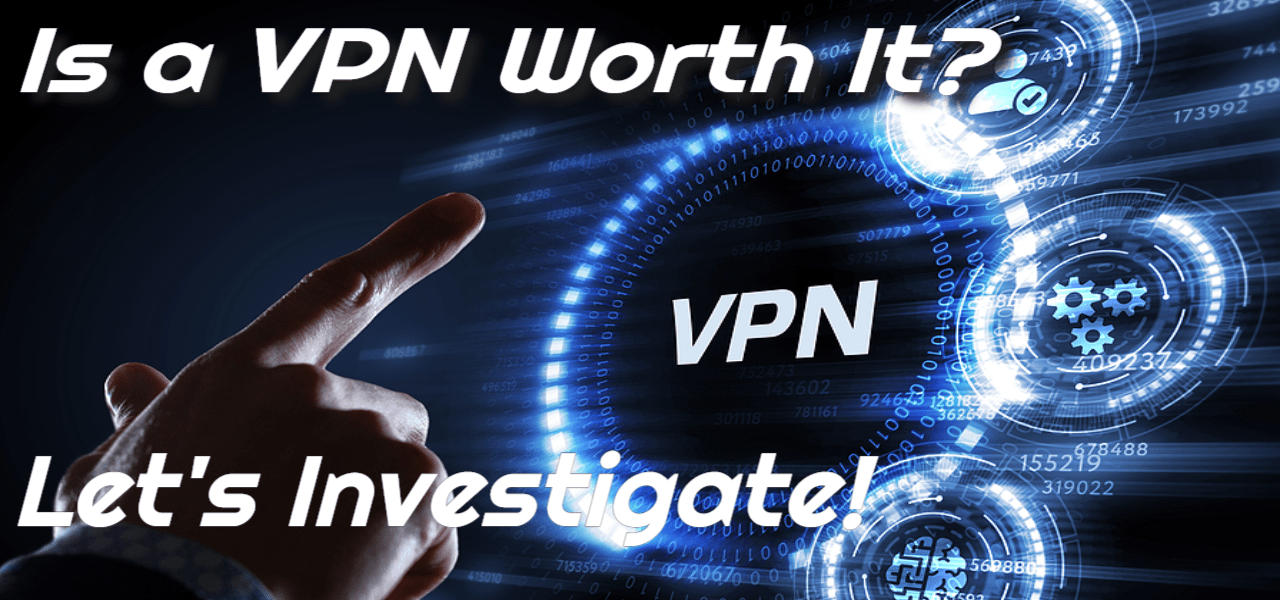
Is a VPN Worth it? – Let’s Investigate
Is a VPN Worth it?
Is a VPN worth it? Some of us will claim that using a VPN is required. Others couldn’t give a damn if they had one. But, regardless of whatever group a person falls into, one thing is certain: our online privacy is rapidly dwindling.
Everyone wants your personal information and online habits, from fraudsters, robbers, and scam artists to your internet service provider (ISP) and favored search engine.
Believe it or not, you’re worth a lot of money.
VPNs can help in this situation. In theory, they’re meant to keep us anonymous and safe online while also avoiding data collecting and profiling in general.
But is a VPN worth it, and is it the cure-all that everyone claims it to be?
The short answer to the question ‘is a VPN worth it?’ is ‘yes,’ in my opinion.
When you visit a website, make an online purchase, or post on social media, you leave a digital “footprint” that businesses may and do follow in order to collect personal data.
Because of this level of monitoring, certain companies may know more about your online habits than which you are comfortable. Companies aren’t the only ones who value your personal information. Hackers may use your personal information for illicit reasons.
So, how do you protect your online privacy? A VPN, or Virtual Private Network, protects your privacy by allowing you to surf the internet safely and anonymously.
So, to address the question, “Is a VPN worth it?” let’s take a quick look at some of the primary benefits of using one.
It Protects your Online Privacy.
A VPN protects your internet activity by functioning as a shield. Installing a VPN on all of your internet-capable gadgets will allow you to access the internet safely regardless of whether you’re at home or on the road.
Depending on where you are, Wi-Fi may be offered at coffee shops, restaurants, clubs, and school campuses.
There is no way to determine the security level of these networks.
A man-in-the-middle attack, which happens when an attacker intercepts data on an unsecured network, might be used to eavesdrop on your connection and steal your data.
These assaults are extremely dangerous for people who work from home. According to research, 80 percent of remote employees work primarily from home, with a coffee shop serving as a secondary location for 27 percent.
The fundamental function of a VPN is to encrypt your connection, allowing you to safely browse the internet even when utilizing public hotspots.
Examine Global Streaming and Music Services
Global streaming is one of the most common reasons people use VPNs.
When using a virtual private network, you typically have the option of specifying the country in which you wish your connected server to be located.
If you wish to access a website or service that is only available in the United States but you are in Spain, you can do so by activating your US virtual private network connection.
All streaming content is unavailable abroad due to a contract between streaming providers and production firms. You can gain access to restricted content in your area by connecting to the server using a VPN tunnel.
Because HBO-Max is not available in Canada, you may use a VPN to change your location and access the service from anywhere around the globe. It is also advantageous to sports fans.
It is unable to watch commentary or matches at home due to geo-restrictions. By subscribing to a VPN service, die-hard fans may view live games and analyses.
Throttling of Bandwidth is Removed.
Certain types of internet traffic may lead your internet service provider to restrict your speeds.
According to one study, the four major US carriers – Sprint, AT&T, Verizon, and T-Mobile – have unequally blocked streaming services. AT&T throttled Netflix in 70% of their tests, while T-Mobile throttled Amazon Prime Video in 51% of their tests.
You may avoid this limitation by connecting to a VPN server. Your internet service provider can still see how much bandwidth you’re using, but not what sort of data you’re transferring across the network.
After answering the question, “Is a VPN worth it?” (which I surely feel it is), let’s dive a little deeper and clarify what a VPN is and how it works.
Next, what exactly is a VPN (Virtual Private Network)?
Virtual private networks (VPNs) encrypt your data and keep your online activities hidden from prying eyes.
When you browse a website, your computer creates a connection with the server. that hosts the site, and depending on the site, that server can access a certain amount of data about you and your machine.
When you use a VPN, you first connect to a private server, which scrambles your data to make it much more difficult for others to track what you’re doing online.
Consumer VPNs are generally used for secure browsing. As an owner of a business, you may use a VPN to enable remote access to your corporate network, and you can even set up a VPN at home to remotely access PCs and data on your local network.
Regardless of its purpose, a VPN transfers your internet traffic to a private network. This connection allows you to browse files without placing them at risk on the internet for personal use. In the event of public use, this means connecting to a private network of secure servers before attempting to access the open internet.
How Can a VPN Keep You Safer Online?
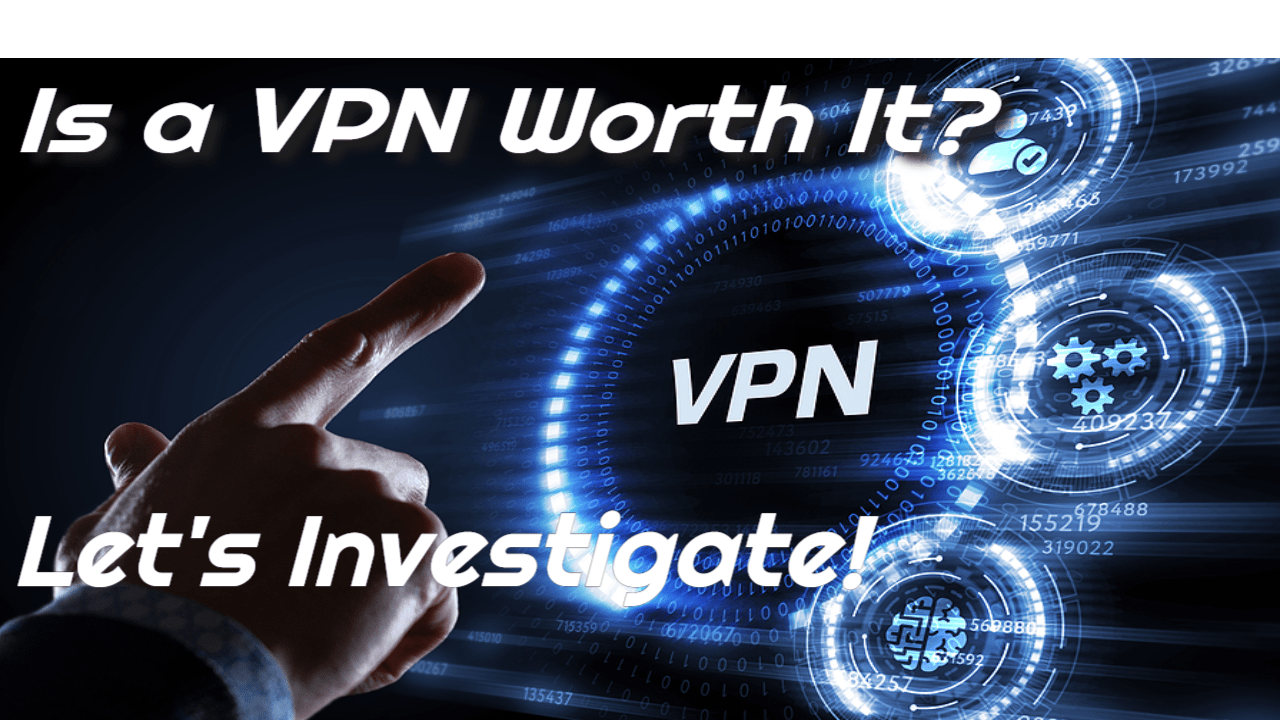
To begin with, a VPN protects your online security by encrypting the data you send, keeping it safe from prying eyes like your internet service provider.
While your internet service provider will be able to see that you’re connected to a VPN (or, at the very least, that you’re connected to an encrypted server somewhere), all data passing through its systems will be encrypted, making it difficult for the ISP to decipher.
As a consequence, the ISP will be unable to exploit your data for its own purposes (selling user information to advertising or providing information to authorities if required).
Furthermore, when you use public Wi-Fi at an airport or café, for example, where your data is theoretically more likely to be infiltrated by a malevolent party, you’re considerably safer because the VPN encrypts the data, so that party gains nothing from its spying.
A VPN also provides anonymity by changing your IP address (more on this later) to something other than what it is – replacing your computer’s address with the address of the virtual private network server, as previously mentioned.
By changing your address, you are implying that your online behavior cannot be traced back to your device, potentially safeguarding you from privacy assaults.
So, back to the original question: Is a VPN worth it? Given the diversity of alternatives that a VPN provides, my answer is a hearty yes.
However, the question remains: does a VPN keep you safe from hackers? This will be discussed more in the next section.
Does a VPN Keep You Safe from Hackers?
Every 39 seconds, a cybercriminal attempts to steal sensitive information from someone. These assaults may cause a tremendous amount of anxiety and financial harm to those who are victims. Identity theft causes emotional stress in 77.3 percent of victims, and a new victim is recorded every 2 seconds, affecting 33 percent of US people.
Those are some massive sums! Proper VPN use might greatly lower that amount, adding to the affirmative response to the question, “Is a VPN worth it?”
So, how can VPNs keep you safe?
A VPN encrypts your internet traffic and directs it to a VPN server a VPN server. This encryption disguises your IP address and helps to avoid third-party and snooper tracking.
If a cybercriminal obtains access to your network — for example, if you connect to an unsecured public Wi-Fi network — they will be able to intercept your personal data. If you have a VPN installed on your device, the intercepted data will only be seen as scrambled code.
Any cyberattacks in which the hacker is attempting to know your IP address will also be far less likely, because the only IP address they’ll be able to view is the one associated with the VPN server. This will improve the security of your online life and may repel hackers.
The irony of a VPN is that, while it’s purpose is to protect you from hacker attacks, hackers also use it to disguise their tracks so that authorities cannot monitor them. To be sure, many hackers are crooks who are constantly being pursued by authorities in many countries.
As a result, in order to escape discovery, hackers must likewise camouflage themselves. One approach they use to conceal their online footprints is the virtual private connection.
So, if hackers use a VPN to conceal their online fingerprints, that’s reason enough for you to use a VPN to hide your tracks from hackers as well – just one more logical response to the question, “Is a VPN worth it?”
VPNs are quite useful, but it is vital to understand their limitations.
They can protect your data while it is sent from your device to the VPN server and back. They can’t fight hackers if the hacker has direct access to your phone or is waiting on the other side of the transmission when your data arrives.
VPNs are designed to protect your data while it travels to and from your device, but certain hacking attacks will work outside of those constraints. VPNs cannot protect you against a simple human error or a compromised device, further explained below.
What Doesn’t a VPN Protect You Against?
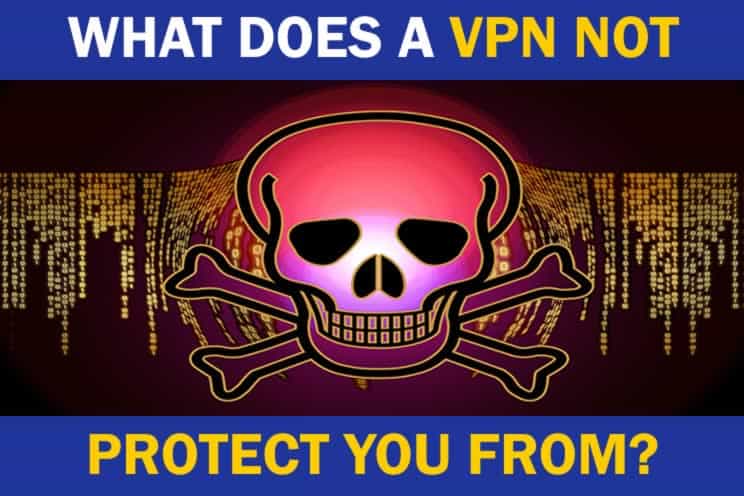
Malware and phishing, for example, are not protected by a VPN since they do not require access to your IP address.
By putting malicious software, files, and codes onto your device, some attackers can gain control of it.
You may be exposed to malware if you visit unauthorized websites or attempt to download third-party apps. Hackers may occasionally send you a bogus email containing harmful files that, when opened or downloaded, may cause damage to your machine.
Indeed, Sophos now offers the same level of protection for personal computers as it does for over 300 million business devices worldwide.
On the other hand, a VPN will not safeguard you against phishing attempts.
It can only blacklist obvious suspicious sites like “paipa1.xyz.” However, it cannot protect you from phishing emails. Every month, hackers create over 1.4 million phishing sites, the majority of which are difficult to distinguish from legal ones.
Anti-phishing browser addons can assist in protecting you against phishing attacks.
So, is a VPN worth it? We have offered a plethora of evidence to support our contention that it most surely is. The only decision left is utilizing a free VPN or paying for a premium VPN service. Let us investigate.
Is a VPN Worth It? – Paid VPN vs. Free VPN
Okay, we’ve made it to the year 2022. Users are still comparing free vs. paid VPNs. And, of course, it’s an essential and relevant question.
To put it simply, nothing in our world is free. Everything has a cost. This is especially true with the internet.
Even if it were free, it would appear to be more enticing than paying for an annual VPN subscription. There are, however, a few concerns to consider.
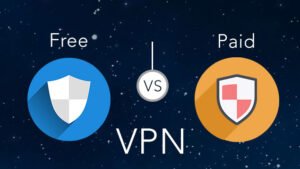
How can they supply you with a free service if it is completely free? They are not a non-profit group that assists internet users for free.
To choose the best option, you must understand the distinctions between free and commercial VPN services, which we will go over below.
The Cons of Using a Free PBN
Collection and Sale of Data
Running a virtual private network is not cheap. One way free VPN providers earn money is through selling your data.
When you connect to a free VPN, the free VPN service may track and monitor your online activity, including your browsing patterns. Your supplier sells this information to third-party bidders after compiling it.
Advertisements Will Constantly Interrupt Your Surfing.
One of the most prevalent methods for free VPN providers to profit is through advertising.. Even if the provider does not track or sell your data, the constant annoyance of adverts may make you regret trying to save a few dollars each month.
Flaws in Security that can be Exploited.
Many free VPNs use dubious security measures and poor encryption, which can be used to impersonate viruses. Because of this lack of protection, hackers and spy outfits may easily decode your data.
Functionality and Overall Usability are Limited.
Using a premium VPN gives you access to a plethora of features, unlimited bandwidth, and a much more comprehensive server network. When utilizing free VPNs, all of these functionalities are significantly limited.
Free users are frequently limited to a subset of accessible servers, with reduced connection speeds and access to advanced services such as Multihop.
As a result, using a free VPN means giving up a lot in terms of functionality and overall user experience.
The Benefits of Using a Paid PBN
Genuine Online Privacy Protection for your Personal Information.
Paid PBNs, unlike free VPNs, are unconcerned with your online activities. Because its revenue model is solely subscription-based, it does not sell or collect your browsing data for any other purpose.
Outstanding Network Security.
Paid VPNs enable a variety of tunneling protocols and provide end-to-end encryption using AES 256-bit.
Tunneling is a processor that bundles, encrypts, and routes your data through a VPN server before it reaches its destination, such as a website you want to view. Tunneling conceals the natural data flow while masking your actual IP address and location (what you actually do online).
Establishes No Bandwidth or Speed Limits
This means it will be limitless to how much internet data you may transfer via the virtual private network servers each day, week, or month.
Paid VPNs feature dedicated servers for online video streaming, peer-to-peer activities, and gaming, so you can bid farewell to buffering and painfully slow downloads.
Enables a Slew of Extra Features
In addition to better privacy, security, and worldwide content access, a premium VPN offers several other advantages. Many premium services, for example, let you use their software on many devices simultaneously with a single subscription.
Our Top VPN Service – The Most Trusted Leader
A reliable VPN service establishes a secure, encrypted tunnel through which online traffic can pass. Nobody can see through the tunnel, access your online data, or figure out your actual IP address and location.
NordVPN is the best VPN to use if you want to feel safe when utilizing public Wi-Fi. Securely access personal or professional data, encrypt your internet connection, and conceal your browser history and online identity.
Do you want to safeguard all of your devices?
Do you use Windows at your place of work, Mac OS at home, and Linux for special projects? You will enjoy internet privacy and security on all platforms.
NordVPN also offers applications for Windows, macOS, iOS, Android, Linux, and even Android TV. There are also encrypted proxy plugins for Chrome, Firefox, and Edge.
The best part is that you may encrypt up to six devices simultaneously with a single NordVPN subscription. With 14 million customers worldwide, it is the most outstanding VPN provider for all of your devices.
Do you want to be able to connect to the internet quickly and reliably from anywhere?
Buffering is the ultimate buzzkill for me; therefore, having a bad internet connection to broadcast or download anything is not an option.
No need to be concerned – what sets NordVPN apart from other VPNs is its unequaled combination of impenetrable security, fast connection speed, and infinite capacity.
Choose from over 5400 NordVPN servers in 60 countries and enjoy the fastest VPN experience in the world – from the United Kingdom to Australia or Canada.
Do you want to be protected from advertisements, trackers, and malware?
NordVPN’s newest feature, Threat Protection, takes your cybersecurity to another level.
It does not need a connection to a VPN server in order to work. If you enable Threat Protection in the settings, it will continually make your browsing safer and smoother.
You can forget worrying about going on a malicious website, downloading malware, or dealing with trackers and irritating adverts. Threat Protection will detect and eradicate cyber threats before they cause major harm to your device or data.
Click here for more information on our #1 pick, NordVPN, its award-winning features and security, and its 30-day money-back guarantee.
This Post: Is a VPN Worth it? – Let’s Investigate first appeared on https://websecurityhome.com
Brought To You By:





